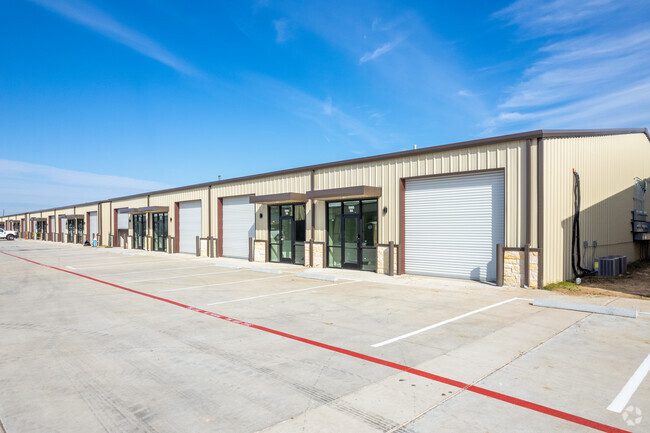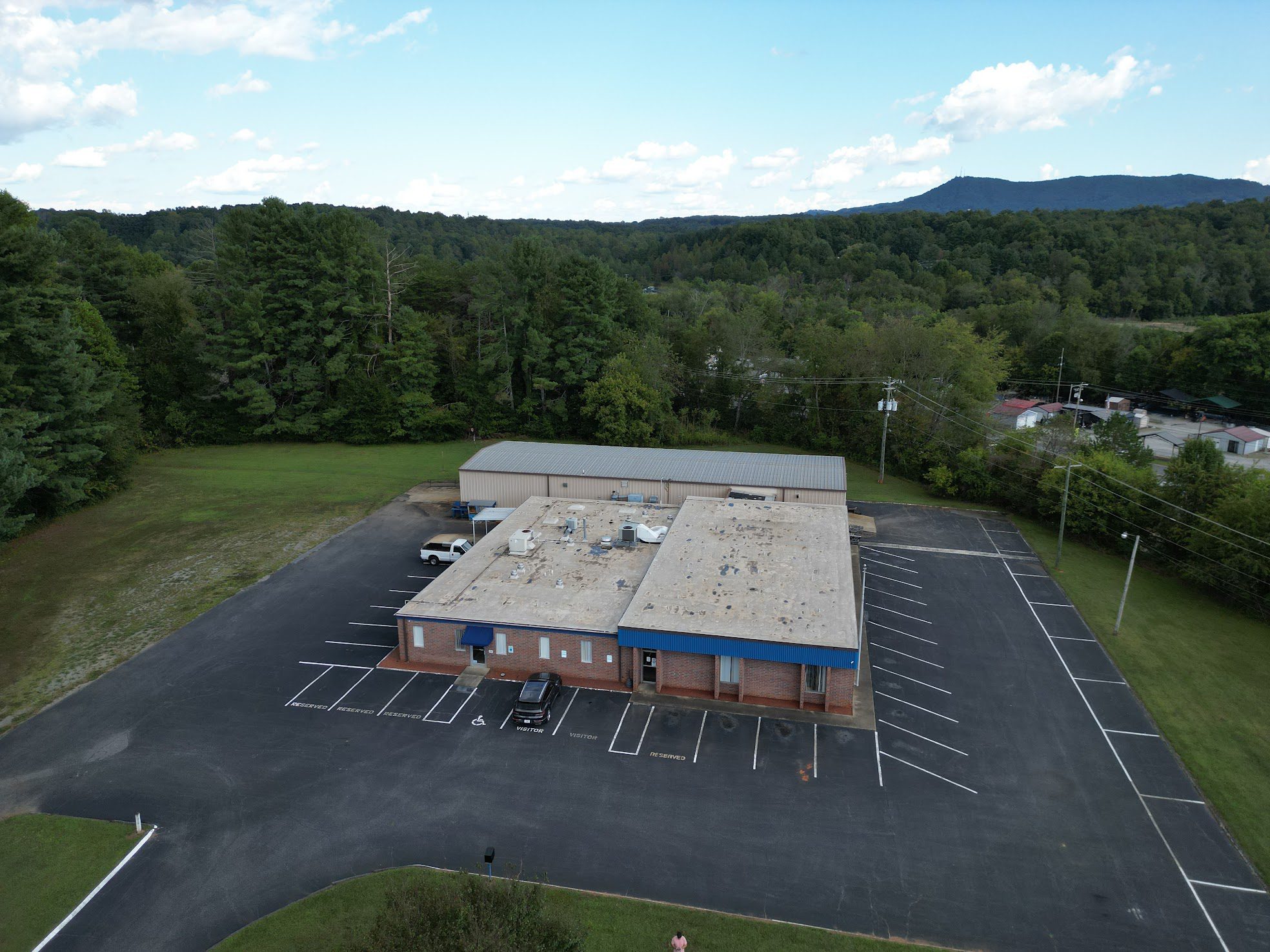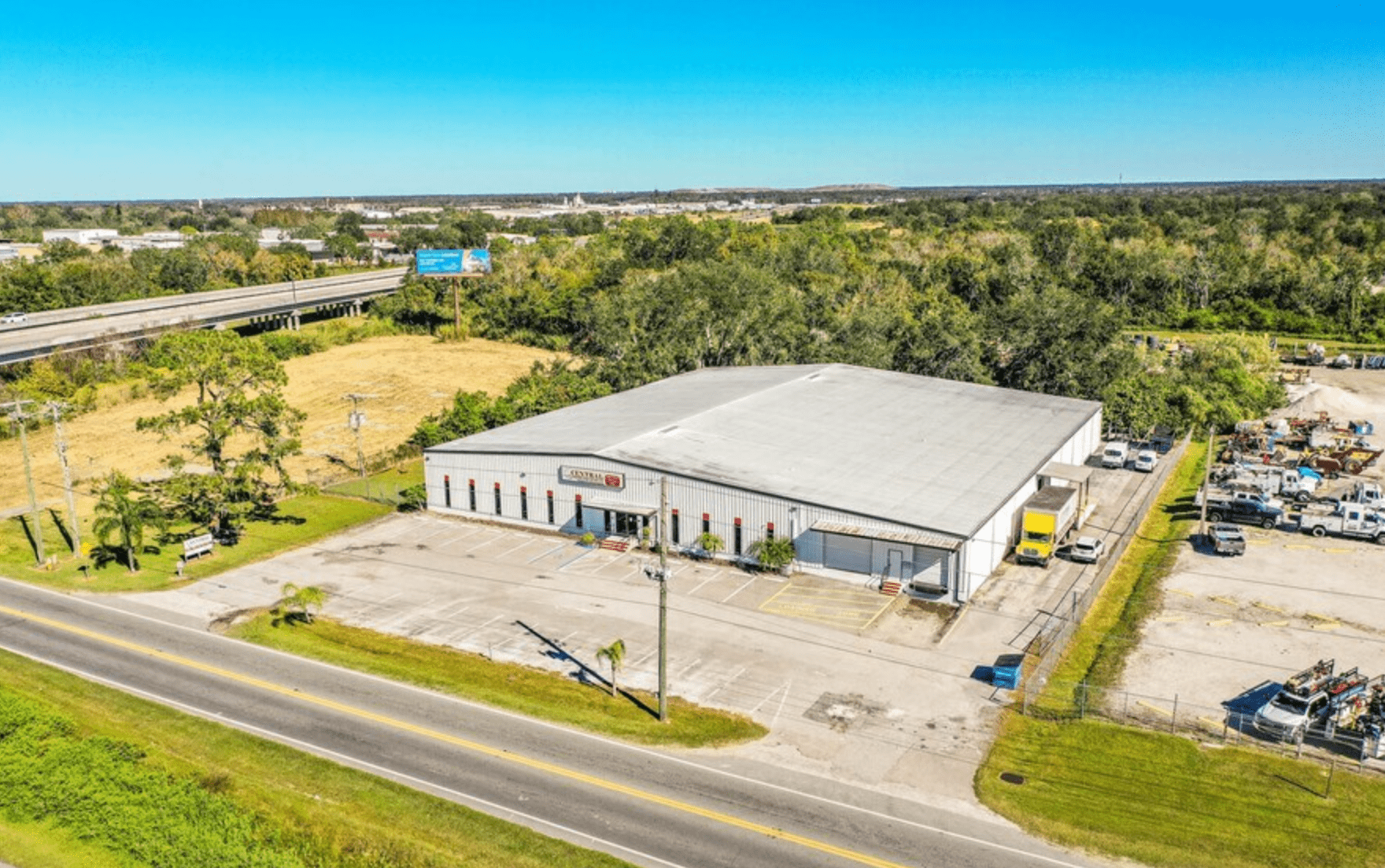What Makes a Flex Space in the Carolinas
If you’ve driven through Charlotte, Raleigh, or Greenville lately, you’ve probably noticed a new kind of building popping up—low-rise, clean-lined structures tucked between industrial parks and office corridors. These aren’t your typical warehouses or offices. They’re flex spaces—and they’re quietly becoming one of the most versatile and investable property types in the Carolinas.
At Roth Capital, we buy and operate industrial, flex, and retail properties throughout North and South Carolina. We often meet owners who don’t realize that what they have—an older “small bay” building, a contractor garage setup, or a hybrid office-warehouse—is actually considered flex space. And that classification can make a big difference when it comes to value and marketability.
Let’s break down what a flex space really is, why it’s in demand, and what it means for property owners in the Carolinas.
What Exactly Is a Flex Space?
“Flex space” refers to a property designed for flexibility in use. Typically, these buildings combine warehouse or light industrial areas with a smaller portion of office or showroom space up front.
A few defining features:
-
One-story or low-rise (usually 12–24 ft clear heights)
-
Drive-in or small dock doors for loading
-
Modular units that can be reconfigured for different tenants
-
Blend of office and warehouse — often a 70/30 or 50/50 split
-
Zoned light industrial or mixed-use
In plain terms, it’s the Swiss Army knife of commercial real estate. A single unit can serve as a contractor garage, an e-commerce fulfillment space, a small manufacturer, or a design studio.
Why Flex Industrial Properties Are So Popular in the Carolinas
1. The Shift Toward Smaller, Local Tenants
Many industrial tenants today don’t need—or can’t afford—100,000 square feet. They’re electricians, plumbers, landscapers, HVAC contractors, or local distributors who just need 2,000 to 10,000 square feet with a drive-in bay.
These small bay tenants make up a huge share of the Carolinas’ economic backbone. And because they tend to be local, they value proximity to customers, easy access, and affordable rent—three things flex spaces deliver well.
2. Strategic Locations Near Growth Corridors
The best-performing flex parks sit close to population centers but not deep inside them. Think Concord, Huntersville, Rock Hill, and Greenville’s I-85 corridor.
Tenants want to be near highways and rooftops—not stuck in heavy industrial zones miles from town. Flex space fills that middle ground perfectly: close enough for service calls, but with enough land for loading and parking.
3. Rising Replacement Costs
Building new flex product isn’t cheap anymore. Between land prices, construction costs, and stricter zoning, it’s often cheaper to buy an existing building than to build one from scratch.
That’s made older contractor bays and light industrial parks more valuable than ever. Even a 1980s tilt-wall or block building with solid bones can trade at impressive cap rates if it’s in the right market.
Common Flex Configurations in the Carolinas
Not all flex spaces look alike. Here are a few variations we commonly see when buying properties across NC and SC:
1. Small-Bay Industrial Parks
Usually 5,000–25,000 square feet divided into 1,000–5,000 sq. ft. bays. Each unit has its own drive-in door and a small office. These are ideal for contractors, trades, and service-based companies.
2. Flex Office-Warehouse Buildings
These have a more polished front—sometimes even glass storefronts—paired with warehouse or storage areas behind. They attract design firms, distribution companies, and light assembly users.
3. Multi-Tenant Contractor Garages
Often older buildings with multiple roll-up doors in a row. These properties may not look flashy, but they’re almost always fully occupied and easy to lease.
4. Single-Tenant Flex Properties
A growing number of small businesses buy or lease single-user buildings—think regional HVAC companies or logistics operators who need both admin space and warehouse capacity under one roof.
Flex Space Market Trends Across the Carolinas
Even with new industrial supply hitting the market, demand for smaller flex units remains strong. Here’s what we’re seeing on the ground:
-
Tight vacancy rates — Most sub-10,000 sq. ft. spaces lease quickly, often within weeks.
-
Rent growth — Annual rent bumps of 3–6% are common, especially near Charlotte, Raleigh, and Charleston.
-
Tenant stickiness — Service-based users rarely move unless they’re forced to. Once they find a convenient location with drive-in access, they tend to stay.
-
Owner-user demand — Many small businesses are looking to buy their own buildings as rates stabilize.
That steady demand gives flex owners leverage—and options. Whether you hold for income or consider selling, you’re sitting on one of the most resilient property types in commercial real estate.
What Determines a Flex Property’s Value?
Every deal is unique, but a few factors consistently drive value in this segment:
1. Location and Accessibility
Easy access to major routes (I-77, I-85, I-26) is critical. Tenants want to reach customers fast. Buildings near population growth centers like Huntersville, Rock Hill, or Spartanburg command premiums.
2. Unit Size Mix
A mix of smaller bays (1,500–3,000 sq. ft.) attracts the broadest range of tenants. Larger bays can work, but the market for them is narrower.
3. Ceiling Height and Door Configurations
Clear heights under 12 ft limit functionality. Drive-in doors are preferred over docks for most small-bay tenants.
4. Parking and Yard Space
Extra parking or outdoor storage (especially for contractors or landscapers) is a huge plus in the Carolinas.
5. Tenant Base and Lease Terms
Well-capitalized local tenants with multi-year leases make a property more bankable and stable.
Selling a Flex Space: What Owners Should Know
If you own a flex industrial property in the Carolinas, you likely have options. You could:
-
Re-tenant or upgrade it for higher rents
-
Sell directly to an investor like Roth Capital
-
Refinance to pull equity while keeping the asset
Selling Directly vs. Listing Through a Broker
Many owners choose to sell directly to a buyer experienced in flex and industrial properties. Why?
-
No commissions or listing delays
-
Confidential process — no “for sale” signs or tenant disruptions
-
Fast closings — Roth Capital often closes in 30–45 days
-
Certainty of execution — we buy with cash or committed capital, not contingent on financing approvals
If you’re considering a sale, we can underwrite your property confidentially and give you a fair, straightforward offer. Even if you’re not ready to sell, knowing your building’s value can help with planning or refinancing decisions.
What Makes the Carolinas a Prime Flex Market
The Carolinas’ combination of population growth, business-friendly climate, and affordable land continues to attract small and midsized enterprises.
-
North Carolina is seeing continued expansion around Charlotte, Concord, Mooresville, and the Triad, driven by logistics and construction trades.
-
South Carolina has strong demand in Greenville-Spartanburg, Rock Hill, and coastal markets like Charleston and Summerville.
Both states benefit from lower taxes, strong in-migration, and a skilled trades workforce. For flex space owners, that translates into stable occupancy and consistent appreciation.
How Roth Capital Approaches Flex Acquisitions
At Roth Capital, we’re not brokers—we’re direct buyers. Our team has purchased dozens of industrial, flex, retail, and multifamily properties throughout the Carolinas.
Here’s what sets us apart:
-
Direct Buyer: We buy with our own capital or committed partners, not on assignment.
-
Local Expertise: We focus exclusively on North and South Carolina.
-
Flexible Terms: Cash offers, short due diligence, and quick closings.
-
Experience Across Asset Types: We understand how flex fits within mixed portfolios—whether it’s an older small-bay park or a newer flex-office building.
If you’re considering selling—or just want an honest assessment of your property’s market position—we’re happy to have a confidential conversation.
Ready to Explore Your Options?
Whether your building is a small-bay contractor garage or a multi-tenant flex park, it could be worth more than you think. The market for well-located flex space in the Carolinas remains strong, and demand from both investors and tenants isn’t slowing down.
Roth Capital buys directly from property owners—no commissions, no long listing process, and no surprises.
If you’d like a confidential valuation or just want to talk through your options, reach out to Roth Capital today. We’ll give you straightforward feedback and, if it’s a fit, a fair offer backed by experience.





Recent Comments